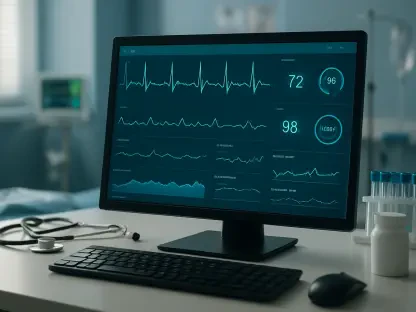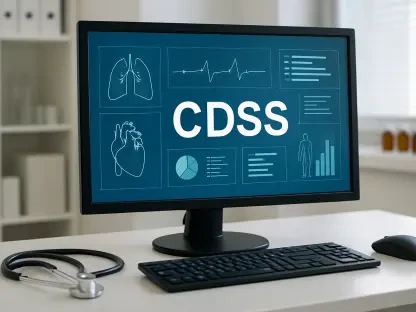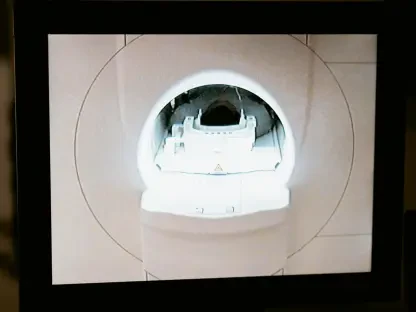The federal government finds itself in the midst of a contentious shutdown, sparked by a bitter partisan clash between Senate Democrats and House Republicans over a continuing resolution to sustain federal operations. This deadlock has thrust the issue of taxpayer-funded healthcare for undocumented immigrants into the national spotlight, with accusations and denials flying from both sides of the political aisle. House Speaker Mike Johnson (R-LA) has pointed fingers at Senate Minority Leader Chuck Schumer (D-NY), alleging that Democrats are holding funding hostage to secure healthcare benefits for undocumented immigrants, a claim that Schumer vehemently disputes. As critical services hang in the balance, affecting federal workers, troops, and essential programs, the public watches with growing frustration. This standoff not only highlights deep divisions over healthcare policy but also raises broader questions about fiscal responsibility and political priorities in a polarized landscape.
Unpacking the Partisan Standoff
The core of this political gridlock lies in a fundamental disagreement over federal funding priorities, particularly regarding healthcare access for undocumented immigrants. House Speaker Mike Johnson has publicly accused Senate Democrats, led by Chuck Schumer, of demanding provisions in the continuing resolution that would effectively reinstate taxpayer-funded healthcare for undocumented immigrants. According to Johnson, a specific section of the Democrats’ alternative bill aims to repeal recent Republican health policy reforms enacted through a significant legislative act, which reportedly saved taxpayers $185 billion by removing millions of ineligible recipients from Medicaid. Republicans argue that reversing these changes would burden American taxpayers with costs for individuals who are not legally entitled to such benefits. This position has fueled their refusal to entertain the Democratic proposal, framing it as a misuse of public funds at a time when fiscal restraint is paramount for national stability.
Beyond the specifics of healthcare policy, the standoff reveals a deeper rift over negotiation tactics and governance. Senate Democrats have twice blocked a House-passed bill described by Republicans as a clean, nonpartisan continuing resolution, leading Johnson to dub the resulting government shutdown the “Schumer Shutdown.” Schumer, in response, insists that Republicans must come to the table for meaningful dialogue, rejecting claims that his party is pushing for healthcare benefits for undocumented immigrants. He has called such accusations a gross misrepresentation, emphasizing that federal programs like Medicare, Medicaid, and the Affordable Care Act do not allocate funds to undocumented immigrants. Meanwhile, the White House has aligned with Republican critiques, labeling the Democratic plan an exorbitant demand that includes partisan priorities unrelated to immediate funding needs. This impasse has halted critical government operations, leaving both sides entrenched in their positions with little sign of compromise on the horizon.
Public Impact and Opinion
The repercussions of this government shutdown extend far beyond the halls of Congress, directly affecting millions of Americans who rely on federal services. Federal employees, including Border Patrol agents and military personnel, face the uncertainty of working without pay, while vital programs such as nutrition assistance, telehealth services, and disaster relief risk lapsing due to lack of funding. The stakes are undeniably high, as these disruptions threaten the livelihoods and well-being of countless individuals across the nation. Public frustration is palpable, with many questioning why such a critical issue as government funding has been derailed by a dispute over healthcare policy for non-citizens. The broader implications of this shutdown underscore the urgent need for resolution, as delays in funding exacerbate existing challenges for vulnerable populations and hinder national security efforts at a critical juncture.
Public sentiment, as captured in recent polling data, further complicates the narrative surrounding this political deadlock. A survey conducted by a prominent national outlet reveals that a significant majority of registered voters—65%, including a substantial portion of Democrats—believe that halting government operations over unmet policy demands is unjustifiable. This disapproval cuts across party lines, reflecting a widespread desire for lawmakers to prioritize the immediate needs of citizens over partisan battles. Critics of the Democratic stance argue that past statements from Schumer himself, dating back decades, acknowledged issues of fraud in benefits access for undocumented immigrants, casting doubt on current denials. As the shutdown drags on, the pressure mounts for both parties to set aside ideological differences and focus on restoring essential services, though the path to consensus remains unclear amid heated rhetoric and mutual accusations.
Navigating the Path Forward
Looking back, the government shutdown emerged as a stark reminder of how deeply entrenched partisan divisions shape critical policy debates. The clash between House Republicans and Senate Democrats over healthcare funding for undocumented immigrants stood at the heart of the crisis, with each side steadfastly defending its interpretation of fiscal responsibility and fairness. Johnson’s accusations of Democratic overreach met Schumer’s firm rebuttals, while the White House amplified Republican concerns about the cost of partisan demands. The resulting halt in federal operations left a lasting mark on public trust, as millions grappled with the fallout of delayed services and unpaid work. This episode highlighted not just a policy disagreement, but a profound challenge in bridging ideological gaps during times of national urgency.
Reflecting on the past turmoil, the focus now shifts to actionable steps for preventing similar crises in the future. Lawmakers on both sides must prioritize transparent dialogue and incremental agreements to rebuild trust and ensure government functionality. Establishing bipartisan task forces to address contentious issues like healthcare policy could pave the way for sustainable solutions, while temporary funding measures might serve as stopgaps during heated disputes. Additionally, engaging with public sentiment through town halls or accessible platforms can help align legislative priorities with citizen needs. As the nation moves forward, the lessons from this shutdown underscore the importance of compromise and accountability in governance, urging leaders to place the well-being of Americans above partisan posturing.









